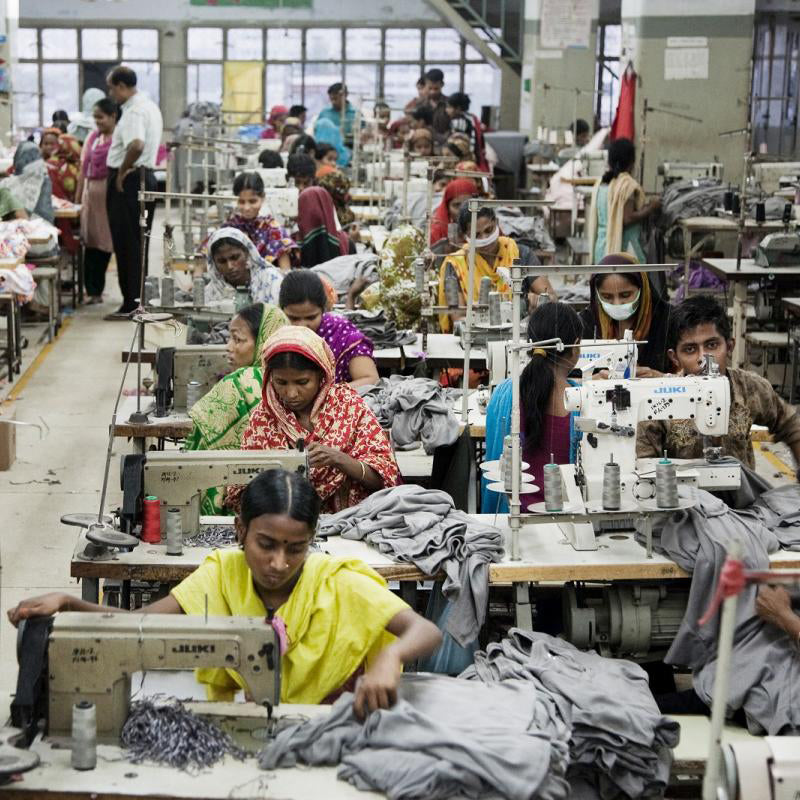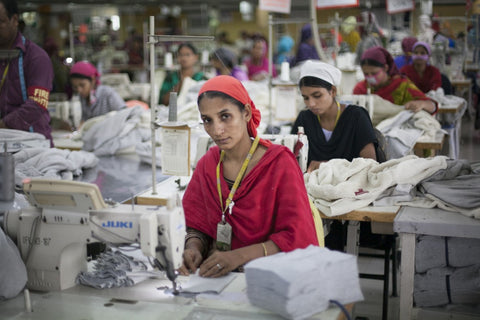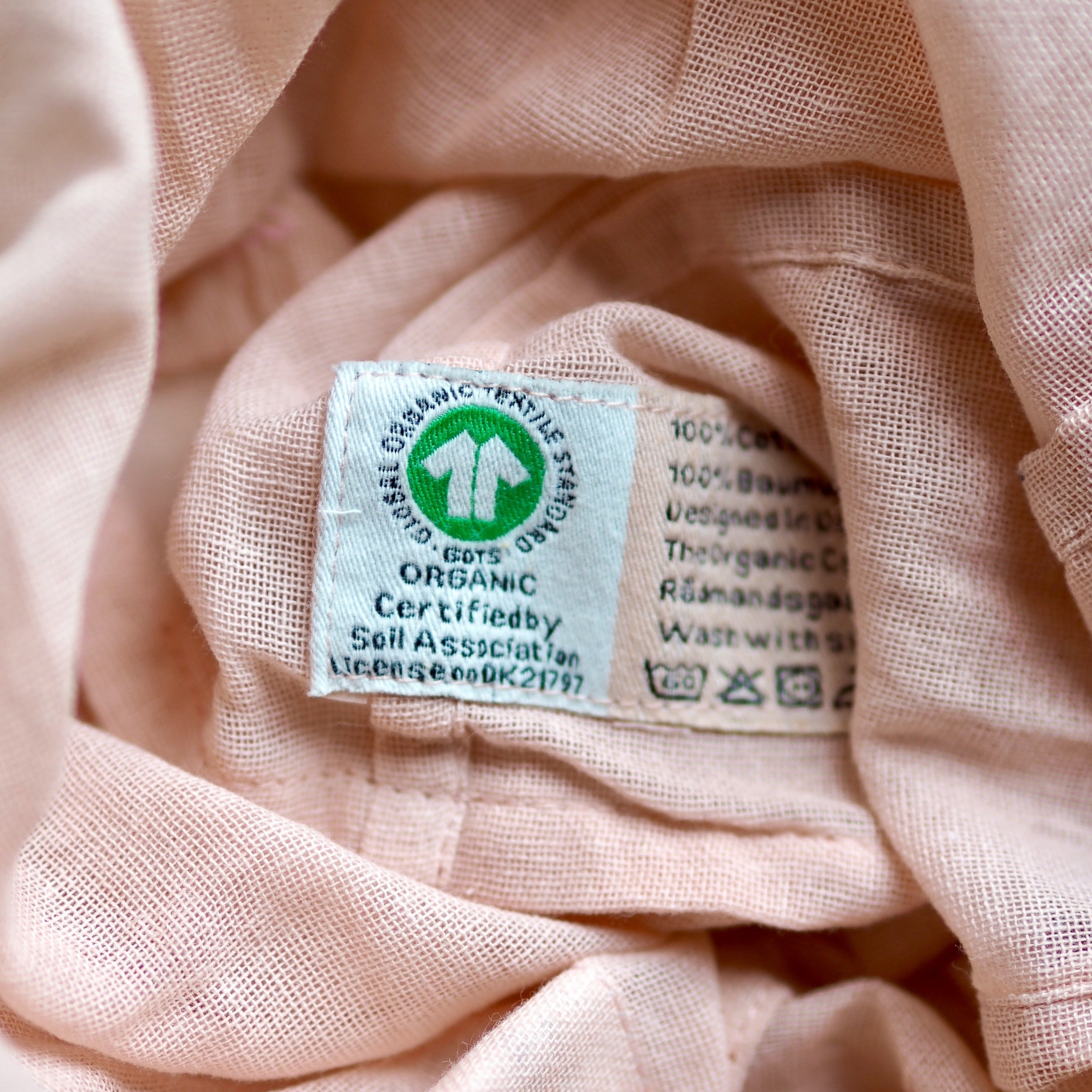Is Fast Fashion a Feminist Issue?

Whilst it’s true that fashion is typically associated more with women, fashion is a creative and cultural expression enjoyed by all genders. In fact, men’s fashion has been increasingly gaining attention and recognition in recent years, with more emphasis on men's fashion in the media and the rise of men's fashion weeks around the world.
Even for those who aren’t followers of fashion, the need to choose and buy clothing still exists. And that need unfortunately exists in a world where the fashion industry is one of the most polluting industries out there. So, whatever your gender, and whatever your fashion choices may be, the issue of fast fashion is one that affects us all. However, there is cause to argue that it is primarily a feminist issue, and here’s why:
80% of garment workers are female

Image source: News Deeply, Blog cover image source: Deccan Herald
Behind the shiny, cheap polyester clothing that hangs on the rails of fast fashion retailers, there are garment workers toiling for long hours, in unacceptable conditions for exceptionally low pay. Garment workers include men, women and even children, but young females between the ages of 18 to 24 make up around 80% of workers in the garment industry. This is not by choice, but through discrimination. Women living in poverty are seen as easy targets. Treated as if they have no voice, female garment workers are easily manipulated and controlled by their employers. These women are motivated to work in such poor conditions due to a lack of alternative options and a need to survive and provide for their families. Those who do speak up are ignored and often met with violence- some may even be killed.
Women are the largest consumers of fast fashion

Studies have found that men are responsible for more overall climate emissions than females through lifestyle choices, spending habits and even their diets. However, when it comes to fashion, women have the greater appetite. With the availability of fast fashion, women are more likely to buy more clothes, more often. Women buy nearly twice as many high-priced jeans as men and tend to follow along with seasonal trends, whereas men typically change their fashion habits at a slower pace.
Purchasing aside, women’s clothing offers more variety than men’s with far more single items of clothing available to women than men. With this in mind, it’s perhaps no surprise that women are driving much of the demand for fast fashion despite the fact the industry victimises women at the production level.
Female influence

Women have long been the targets of marketing which sets unrealistic beauty standards and perpetuates gender stereotypes. However, social media has really catapulted fashion trends from being something you might read about in a glossy magazine or see on TV, to something you can hardly ignore.
YouTubers, Instagrammers, Tik Tokkers – you name it. Most people creating social media content these days have carefully thought about the fashion choices they broadcast. What the ‘Insta-famous’ choose to wear can have an influence on millions of people worldwide, and this is a problem. Unfortunately, fast fashion brands love to partner up with social media influencers, so it’s the unsustainable, unethical garments that are being pushed on large, mostly female audiences.
The whole phenomenon of social media trends relating to fast fashion has even given rise to ‘haul’ posts, where people online (typically female), purchase excessive amounts of cheap clothing purely to share videos of themselves reviewing the items. For those who are eco-conscious, it’s a concerning type of content that illustrates the throw-away attitude that exists towards fast fashion.
Show your support
We believe the fast fashion industry is a feminist issue that has an overall impact on all genders. Support is needed from all corners, to challenge and change the gender stereotypes and power imbalances perpetuated by the fast fashion industry. By speaking out for fairer labour practices and promoting a more sustainable representation of beauty and fashion, we can work towards a more eco-friendly, kinder fashion industry that supports the wellbeing of its workers as well as the planet.
Get in touch!
Do you agree that fast fashion is a feminist issue? If you enjoyed this blog post, check out our others, such as this one on the true cost of retail therapy. We love to hear from you and you can get in touch with us any time on social media or by email.
Follow us on Facebook and Instagram to stay up to date with the latest in sustainable fashion and ethical fashion from Vino Supraja.



